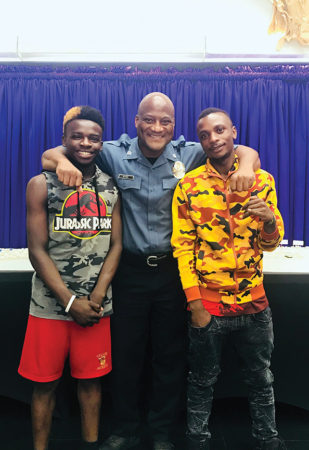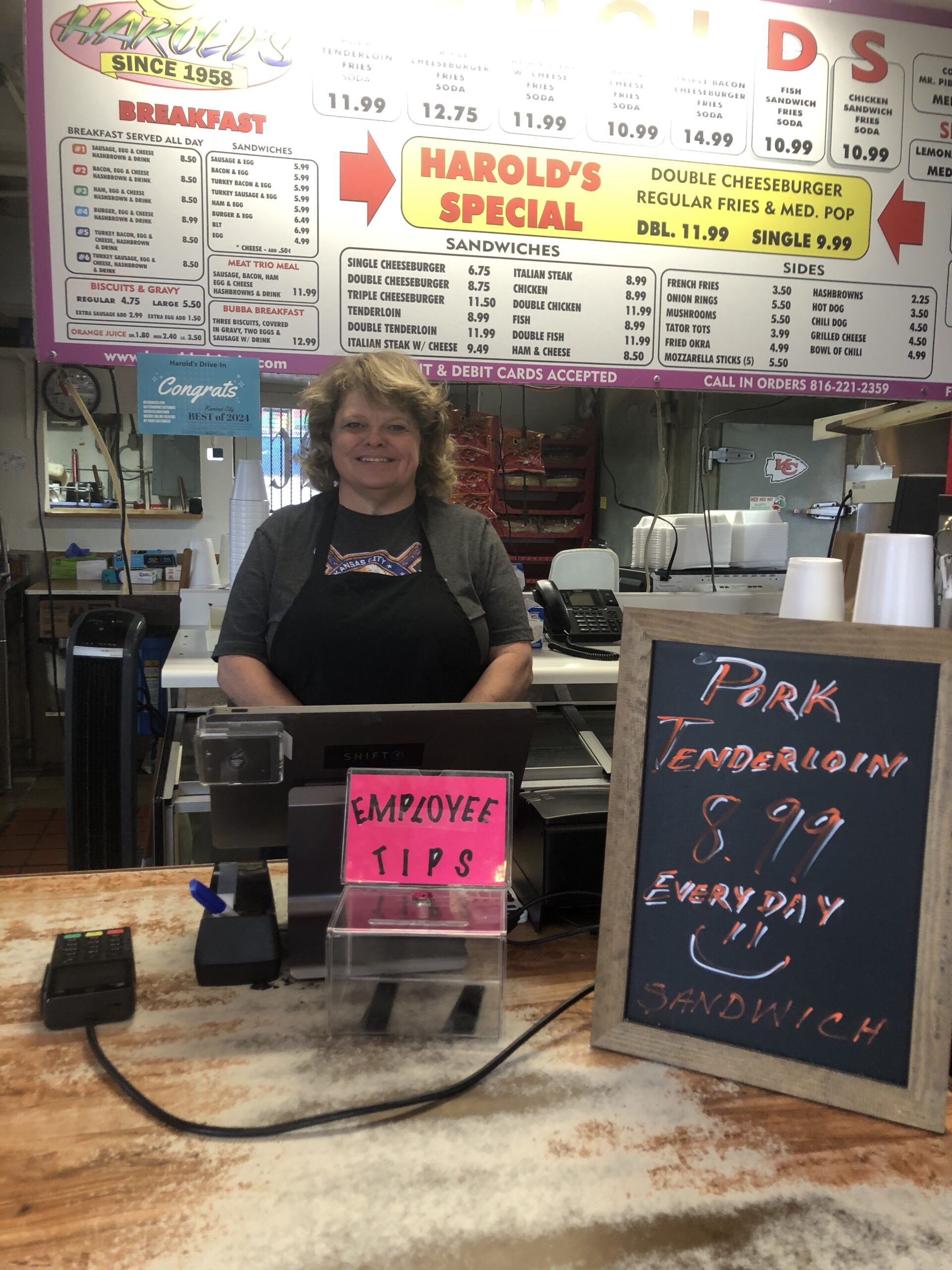Elizabeth Orosco
Northeast News
Kansas City Police officers met with members of the Congolese community this week to work to build bridges and establish relationships between them.
The meeting was held Saturday morning at the Northeast Kansas City Chamber of Commerce.
Community Interaction Officers Greg Smith and Patrick Byrd met with six members of the Congolese community to discuss what could be done to create a stronger relationship between the police and the growing Congolese community.
According to the members in attendance, it is estimated that roughly 118 Congolese families have made Northeast their home, totaling roughly 450 individuals.
The Democratic Republic of the Congo, also known as DRC, or simply the Congo, is a country located in central Africa.
By area, it is the largest country in sub-Saharan Africa, the second-largest in all of Africa, and the 11th-largest country in the world.
The DRC is a multilingual country and it has been estimated that a total of 242 languages are spoken there.
The majority of the members of the Congolese community in the Northeast are of the Bembe tribe, a people based in the eastern Democratic Republic of the Congo and western Tanzania.
The members of the Congolese community in the Northeast are multilingual, as well, speaking three or four languages.
Smith and Byrd said they hoped that the meeting showed KCPD’s priority to establish a relationship, to create a space of open dialogue, and to better understand one another.
Smith said there had been incidents of members of the Congolese community being victimized, but were not reporting the issue to police. He said his goal was to understand why and if there was anything KCPD could do to help.
“As police, we want all citizens to feel safe and feel that they can talk about anything,” said Officer Byrd. “We also want people to see us as human beings, not just uniforms.”
Smith echoed this and said cultures don’t get in the way of the police doing their work.
“We want to let everyone know that no matter what country they are from, they are part of the community,” he said. “We are here to help, to make you feel safe, and you can come to us.”
The members agreed and said they would be open to bringing their leaders, and more members of the Congolese community to a meeting with police officers, to help further bridge the gap.
One of the members of the Congolese community, Tonga, said one of the largest hindrances to them reaching out to police for help was a language barrier.

It was noted that calling 911 in the event of an emergency had proved difficult for the community.
The time it took to find a Swahili interpreter, connect the family with them, translate, and get the information relayed took a while.
One of the members of the Congolese community said what they usually do is have one point of contact on hand that they can call for emergency translation situations; however, there have been instances where that individual was unable to be reached.
He said most of the children in the Congolese community know English, as they have been attending schools in the community, but if they are at school, they have to wait for them to come home.
If necessary, he said their next plan is to call a relative out-of-state that can translate, and have them talk to police.
Byrd and Smith said they definitely want to make sure they have multiple people on hand to call in case of an emergency.
Tonga added that the Congolese community has a gathering once or twice a month to meet as a whole, but unfortunately did not have a specific meeting place.
Bobbi Baker-Hughes, CEO of the Northeast Kansas City Chamber of Commerce, offered the Chamber space as an option for the leaders to meet monthly, allowing them to have a central and fixed location in the Northeast.
Byrd and Smith said they would also be interested in meeting the young men of the Congolese community, to build a relationship and hopefully, have the young men take the message back to their peers that the police are approachable and that they don’t have to resort to violence.
Officer Byrd even mentioned the possibility of some of the young men pursuing a career in law enforcement for themselves.
“Our desire as police is to have the department be a reflection of the city that we serve,” said Byrd.
This would also help, he added, in situations where a Swahili translator is needed. Having a more diverse group of officers, he said, would help in those instances.
One of the young men, Dunia, said he actually has been dreaming of becoming an officer, and was excited to hear that this was an option to him as an 18-year-old.
He asked Officer Byrd for an application on the spot.
Another young man, Jumba, however, said he still felt fear when he saw the police, and he knows he is not the only one.
The majority of Congolese community members are hesitant to approach officers, even if they truly need help.
“We are fearful that the information we tell them will turn on us,” he said.
Purity Kinyua, a native of Kenya, proud member of the Mau Mau tribe, and Independence Avenue Ambassador with the Independence Avenue CID, agreed with the young man and said the police are very violent in their countries.
In 2016, DRC’s level of human development was ranked 176th out of 187 countries by the Human Development Index, a statistic composite index of life expectancy, education, and per capita income indicators, which are used to rank countries into four tiers of human development.
As of 2018, around 600,000 Congolese have fled to neighboring countries from conflicts in the center and east of the DRC. Fighting has displaced nearly 4.5 million people.
Sitting next to Officer Byrd, Jumba said he had never sat next to a police officer before, and still felt fearful, eyeing Byrd’s gun.
By the end of the meeting, the two would hug, take a picture together, and exchange contact information.
KCPD is planning to meet with more Congolese leaders and community members in the upcoming months to build relational bridges and further assist the community any way they can.


















